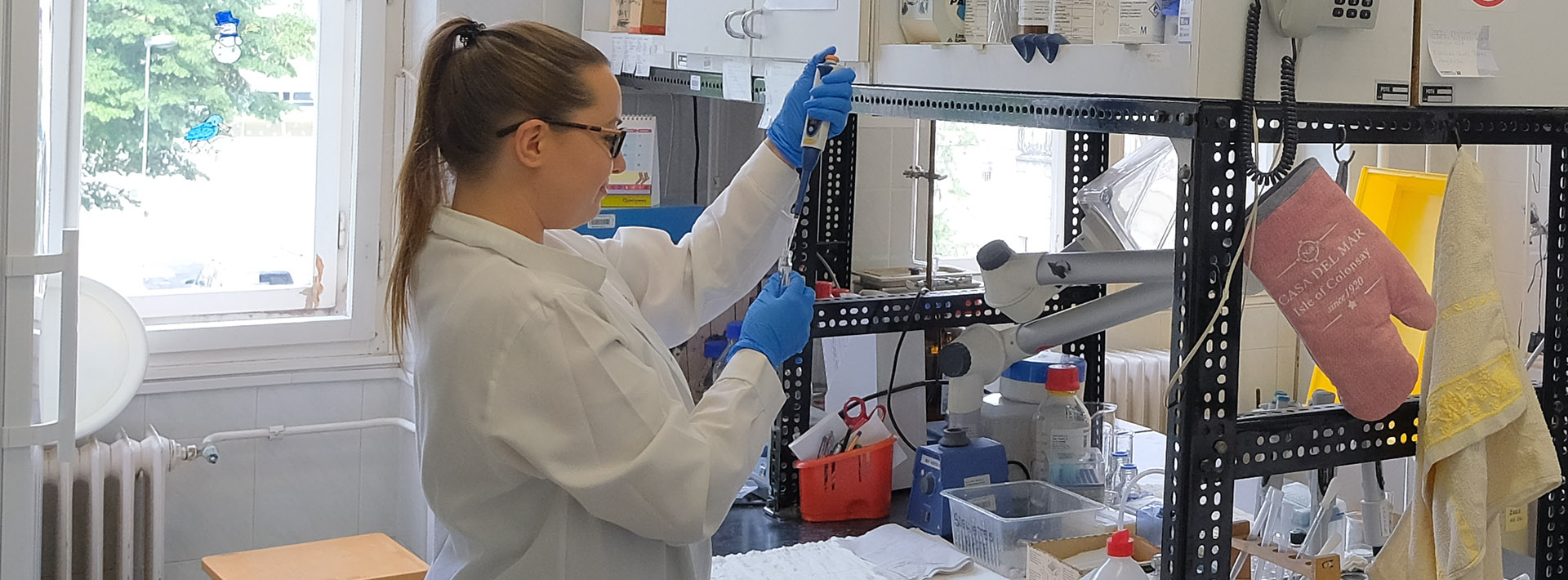Data
Official data in SubjectManager for the following academic year: 2020-2021
Course director
-
Dr. Csilla FENYVESI-PÁGER
assistant professor,
Institute of Bioanalysis -
Number of hours/semester
lectures: 12 hours
practices: 0 hours
seminars: 0 hours
total of: 12 hours
Subject data
- Code of subject: OSF-KFO-T
- 1 kredit
- Dentistry
- Optional modul
- autumn
-
Course headcount limitations
min. 5 – max. 50
Available as Campus course for 50 fő számára. Campus-karok: ETK TTK
Topic
Capillary electrophoresis in laboratory diagnostic processes are considered to be the most modern separation techniques. Its application in health sciences is obvious. The course deals with the theoretical background and application of the microfluidic methods. Design of capillary electrophoretic experiments. Proteins and small molecules. Electrophoresis of cells. Special applications, chiral separations, microbiological applications.
Lectures
- 1. Evolution of separation methods - Fenyvesiné Dr. Páger Csilla
- 2. Development of new electrophoretic methods - Fenyvesiné Dr. Páger Csilla
- 3. Theory of electrophoresis - Fenyvesiné Dr. Páger Csilla
- 4. Separation modes in electrophoresis, Zone electrophoresis - Fenyvesiné Dr. Páger Csilla
- 5. Isoelectric focusing theory, IEF methodology, sandwich injection - Fenyvesiné Dr. Páger Csilla
- 6. Isotachophoresis - Fenyvesiné Dr. Páger Csilla
- 7. Gel electrophoresis - Fenyvesiné Dr. Páger Csilla
- 8. High resolution analysis of macromolecules - Fenyvesiné Dr. Páger Csilla
- 9. Chiral analysis of drugs - Fenyvesiné Dr. Páger Csilla
- 10. Lab-on-a-chip methodology - Fenyvesiné Dr. Páger Csilla
- 11. Application in laboratory diagnostics - Fenyvesiné Dr. Páger Csilla
- 12. Coupling with mass spectrometry - Fenyvesiné Dr. Páger Csilla
Practices
Seminars
Reading material
Obligatory literature
Literature developed by the Department
http://aok.pte.hu/bioanalitika/Oktatas/Oktatas.html
Notes
Recommended literature
James Landers (ed.): Handbook of Capillary Electrophoresis, CRC Press, 1994
Ann Van Schepdael: Microchip Capillary Electrophoresis Protocols, Springer, 2015
Conditions for acceptance of the semester
Maximum of 25 % absence allowed
Mid-term exams
Written examination within the last lecture.
Making up for missed classes
According to the faculty rules.
Exam topics/questions
Discussion of practical questions after home work.
